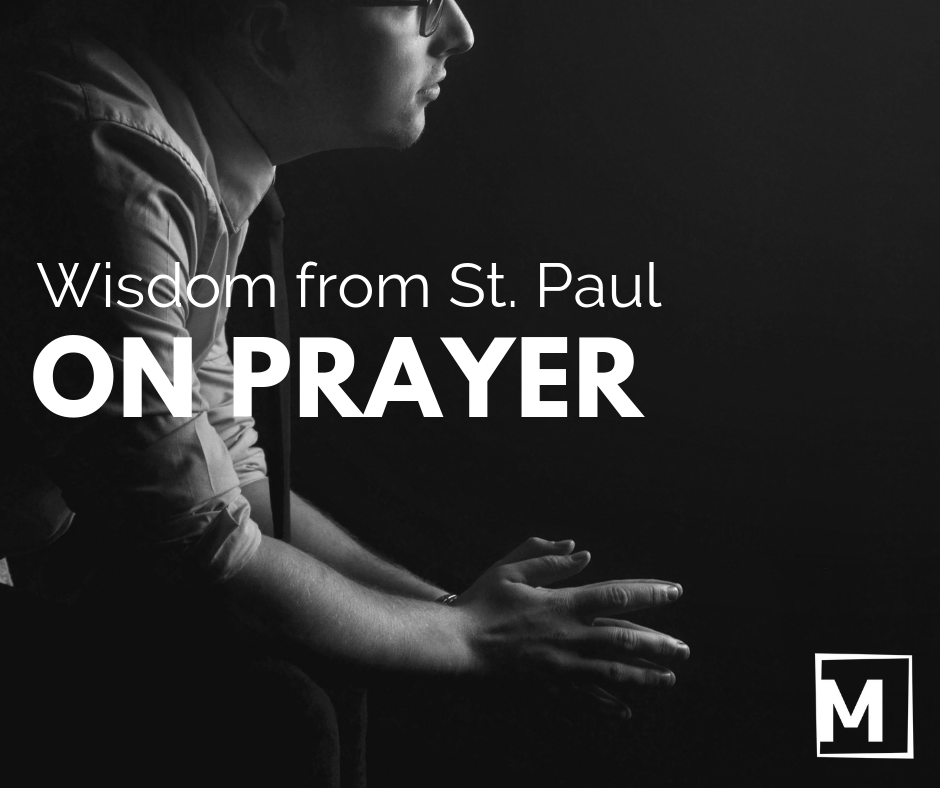The conversation goes like this:
- If you could have a daily time of prayer, what would that look like?
- I would get up before the kids, have a glass of water, find a comfortable space and read something inspiring. Then, I would let it sink in and then talk to God.
That doesn’t sound too difficult does it?
Nonetheless, the space between answering the question and then doing it is vast for many people. It’s as if we instinctively know what we want our daily prayer time to look like but can’t seem to put it into practice.
Can you relate?
Could it be that we are experiencing a St. Paul moment? Remember Romans 7:15-20 which says,
“I do not understand what I do. For what I want to do I do not do, but what I hate I do. And if I do what I do not want to do, I agree that the law is good. As it is, it is no longer I myself who do it, but it is sin living in me. For I know that good itself does not dwell in me, that is, in my sinful nature.[a] For I have the desire to do what is good, but I cannot carry it out. For I do not do the good I want to do, but the evil I do not want to do—this I keep on doing. Now if I do what I do not want to do, it is no longer I who do it, but it is sin living in me that does it.”
St. Paul knew the human experience. Was he talking about prayer? Service? Evangelization? Morality? We may never know.
I do think that one could apply his reflection to prayer. My own life of prayer is somewhat similar- some days, I want to pray but just seem to forget. Other days, I have more motivation. It’s as if I’m going one step forward and another two steps backwards.
Most people I talk with share this experience. Their lives are too hectic and filled with commitments to let prayer seep in.
Two things were as true for St. Paul as they are for you and me:
- We cannot underestimate the tension that comes with the human existence.
- We cannot build a life of prayer without momentum.
Let me explain a bit further. First, we know that a prayerful life is hard. Most of us don’t have the one we desire because we let the urgent get in the way of the important. Errands, schedules and bills quickly crowd out a heartfelt desire to pray. Sometimes I want to throw up my hands and say to God, “why can’t this be easier?”
It can be “easier” but only with spiritual momentum. By spiritual momentum I mean a habit of prayer. Day in and day out, a prayerful person builds the muscle of prayer. This is not a physical muscle but a disposition and a set of actions that eventually becomes like muscle memory. Like any habit, daily prayer can become rooted in your subconscious.
With practice, it’s just what you do.
This momentum is built on a daily habit of spending time alone with God. This is the singular habit that will change a person’s life. It doesn’t exclude other habits that are just as central to the Christian life (i.e. serving the poor, living a sacramental life, practicing virtuous habits).
Prayer, unique in its own way, is the one habit that can be practiced 365 days a year. No church needed. No other people needed. Just you and God, day in and day out.
If the tension of being prayerful was modeled by St. Paul, we should pay attention to his example. His struggle ended up being good enough to propel him as the greatest evangelizer in Christian history.
Liked This Article?
Join my email list and you’ll receive this free PDF worksheet on daily prayer.

